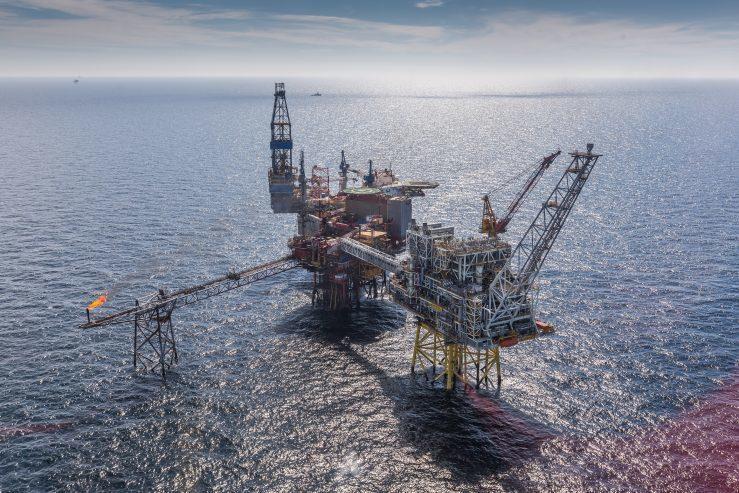
The UK’s offshore energy trade body has warned that further changes to “windfall” taxes on the oil and gas sector would reduce energy security and increase consumer costs.
Offshore Energies UK (OEUK) said that amendments to the government’s Energy Profits Levy (EPL) – also known as the windfall tax – would leave the UK facing “decades of energy insecurity”.
Its warning follows proposals unveiled by Labour leader Kier Starmer on Monday, in which he suggested expanding the levy to fund a total freeze on energy bills over the coming winter.
The EPL increases the current headline rate of tax on oil firms from 40% to 65%, though also offers generous rebate allowances for investments in UK oil and gas production.
Mr Starmer’s plan would see the higher headline rate backdated to January 2022 and the scrapping of the investment incentive allowances.
This would raise an extra £8 billion to help finance a freeze of the current average household energy price cap at around £1,971.
Rising inflation and energy costs are increasing pressure on already stretched household budgets, with energy bills for a typical household expected to soar to over £3,500 in October, and above £4,200 in the first quarter of 2023.
However, OEUK said extending the EPL would “heap further costs on consumers” and risked making the nation “ever more dependent on other countries for the gas and oil needed to keep the nation’s lights on, its homes warm and to fuel its transport system”.
It said the current EPL headline tax rate of 65% was “higher than any other industry and the highest rate of tax in the history of the North Sea,” and that additional changes to the policy would make the UK appear “fiscally unstable” and a “riskier place to invest.”
The group’s sustainability director Mike Tholen added: “The government has a duty to both protect consumers and to ensure national energy security. Labour’s proposals to hit our own producers with further taxes will discourage investment and so risk a rapid decline in UK production.”
Mr Tholen said the move would necessitate buying more energy from abroad, increasing the UK’s trade deficit.
“It comes at the worst possible time for the UK offshore sector, which is still reeling from the introduction of the windfall tax in May,” he said.
Mr Starmer’s plan also includes raising £14bn by scrapping the £400 bill rebate and other Conservative policy measures and raising £7 billion from reducing the government’s debt interest payments on inflation-linked bonds.
Treasury estimates expect the current EPL will raise around £5 billion between May 2022 and May 2023, in addition to around £7.8 billion in corporation taxes already expected in 2022/23.
OEUK has said the windfall measures and existing corporate taxes would cover nearly £14bn of the government’s current £15bn support package for consumers.
Meanwhile, the organisation also wrote to both Conservative leadership hopefuls Rishi Sunak and Liz Truss last week, urging them to back North Sea oil and gas and to express its concerns over the current investment climate.
Recommended for you
